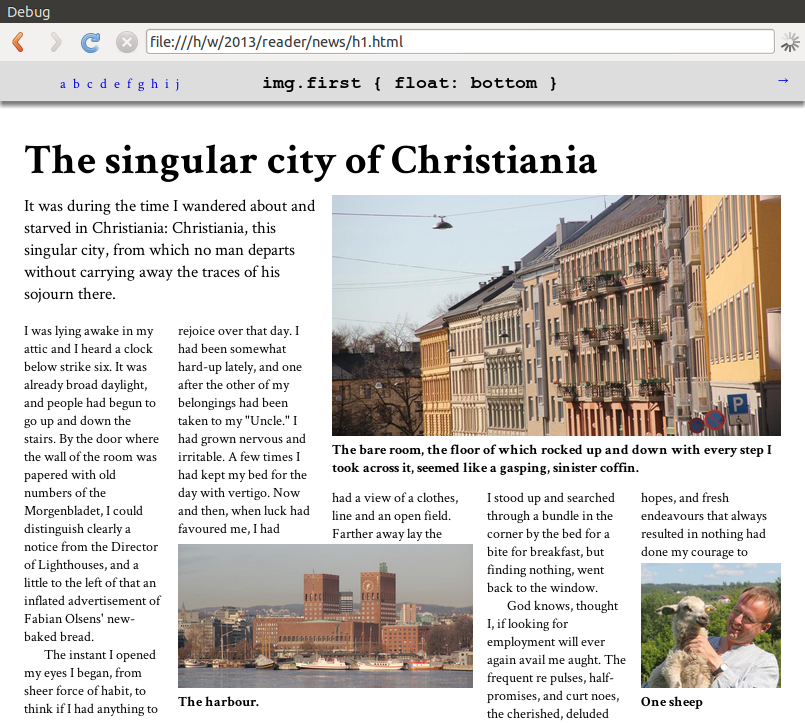All whatwg.org and html5.org domains, including subdomains, are now available over TLS. We are also enabling HSTS though this is not done everywhere just yet. If you find Mixed Content issues be sure to let us know or provide a pull request on GitHub.
Update: TLS and HSTS are now deployed everywhere on both domains. We also submitted the domains to the HSTS preload list.
Posted in WHATWG | 1 Comment »
The WHATWG is starting down the road of getting patent commitments for its standards. You can be part of this!
First, create an account with the W3C's community group system.
Then, join the WHATWG community group.
Then make the patent commitment by following the instructions on this page (pick the first radio button, then click "Record my choice").
That's all there is to it! Google, Mozilla, and Opera have already signed the patent commitment agreement. Anyone can sign up, but it's even more useful if you are an employee of a big patent-holding company and can convince your company to sign up!
Tags: patents
Posted in WHATWG | Comments Off on Make patent commitments for the URL standard
Today we're happy to add two more specs to the WHATWG stable, Books and Figures! These are specifications focused on CSS features. Books provides ways to turn HTML document into books, either on screen or on paper. Using Books, authors can style cross-references, footnotes, and most other things needed to present books on screen or paper. Figures are also based on traditional publishing — it provides ways to float elements with respect to columns and pages, and describes how to wrap text around them.
Printing was part of the first CSS proposal in 1994, and many of these CSS features have been in use since the first paper book written in HTML and CSS (CSS — Designing for the Web) was published in 2005. Now, a decade later, bestsellers are routinely produced with CSS. There are currently two implementations of these specifications that are able to produce books: AntennaHouse and Prince. We hope that our continued work on these specifications will help existing implementations converge, and also encourage browsers to present web content as pages. Pages can be printed, stored as PDF files, or shown on screens. Many users will prefer pages to scrollbars, and these specifications will help make it happen.
As an example of a feature from Books, consider footnotes. Turning an element into a footnote is easy:
span.footnote { float: footnote }
This can, with a few more styles, be formatted as:
![Body text, with a superscripted footnote saying '[1]' in red, and under the body, a short line delimiting the body from text in a smaller font size, with the same red '[1]' indicating the footnote.](//people.opera.com/howcome/2013/whatwg/books/footnotes.png)
In another example, common newspaper and magazine layouts can be achieved with just a 10-line style sheet. Here's what this could look like:

More screenshots and code examples are available.
Feedback on these specifications, like all our others, is most welcome, either on www-style, on WHATWG's mailing list, or as bugs in the bug database.
The features described by these specifications were previously published as part of a W3C CSS working group document that I wrote. Today we are moving the work to WHATWG, a W3C Community Group.
Posted in WHATWG | 6 Comments »
In an email to the WHATWG mailing list Ian Hickson explained how the relationship between the WHATWG and W3C effort around HTML has evolved. It is recommended reading if you want to know the details.
In summary, we will remain focused on improving HTML and related technologies to address the needs of users, developers, and user agents. The W3C HTML WG has decided to focus on producing a snapshot: HTML5. We anticipate the net effect to be accelerated development of the HTML Living Standard.
Posted in W3C, WHATWG | 2 Comments »
A new release of the Validator.nu HTML Parser is available. The new version 1.4 contains minor adjustments to spec compliance and fixes for notable Java-specific problems (of the crash and infinite loop sort). Also, the parser is again available from the Maven Central Repository (groupId: nu.validator.htmlparser, artifactId: htmlparser, version: 1.4).
Upgrading to the newest version is recommended for all users of all previous versions.
Changelog:
- No longer crashes in
setErrorHandler() in the DOM case.
- No longer crashes with
ArrayIndexOutOfBoundsException in the meta prescan.
- Correctness tweaks to HTML integration point and MathML text integration point behavior.
- Slight adjustments to error and warning reporting.
- The XLink namespace is now serialized more nicely.
- Unicode decoder returning zero-length output in the middle of the file is now dealt with correctly.
- No longer goes to infinite loop with the HotSpot workaround applied.
- Builds again with Maven.
Posted in WHATWG | 1 Comment »
![Body text, with a superscripted footnote saying '[1]' in red, and under the body, a short line delimiting the body from text in a smaller font size, with the same red '[1]' indicating the footnote.](http://people.opera.com/howcome/2013/whatwg/books/footnotes.png)
